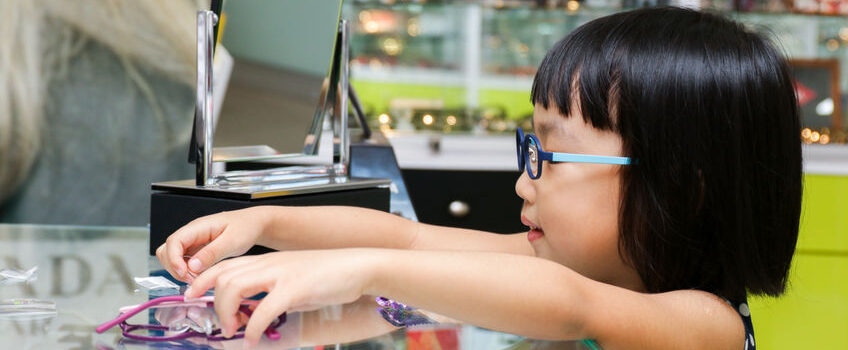DIMS lenses appear to help nearsighted kids
Launched in mid-2018, MiYOSMART lenses developed in cooperation with The Hong Kong Polytechnic University can slow and even stop the progression of myopia in children. Results of a three-year study show the MiYOSMART lens with patented Defocus Incorporated Multiple Segments (D.I.M.S.) can slow and in some cases halt myopia progression.
The original two-year, double-blind, randomised clinical trial found MiYOSMART lenses were found to reduce the progression of myopia for 60 percent of the young participants. In addition, the new lenses completely stopped further vision loss in 21 percent of trial participants.
The recently released follow-up study, conducted on 120 children ages 8-13, included 65 from the original group using MiYOSMART lens and 55 children who moved from using a single-vision lens for two years to the MiYOSMART lens in the third year. At the end of the third year, results in the original group of children using MiYOSMART lens showed that slowing in myopia progression over time was sustained and the group that moved from regular single-vision to MiYOSMART spectacle lens showed a significant and immediate slow-down in the progression of myopia and axial length elongation.
Nearsightedness is on the increase
Myopia is growing alarmingly worldwide, especially in East Asian populations. There are estimates that by 2050, half the world’s population will be nearsighted. Severe myopia is associated with sight-threatening complications.
However, there’s some promising news in sight, at least for children. Effective interventions for myopia management and reduction have appeared in the form of glasses that perform like the contact lenses currently used to slow myopia.
The DIMS Spectacle Lens is based on the principle of myopic defocus and simultaneous vision. A dual focus spectacle lens, it consists of a central optical zone (9mm) for correcting distance refractive error and 400 tiny circular micro-lenses with a relative positive power of 3.50D equally distributed throughout the mid-peripheral area in a honeycomb pattern.
When the eye moves around different regions of the spectacle lens, the eye still experiences a constant amount of myopic defocus while providing clear vision for the wearer at all viewing distances.
A growing need to slow myopia
Myopia can happen when your eye grows too long to focus images clearly on your retina or when your eye’s lens is too thick.
While people with myopia can usually see well enough to read a computer screen or book, they can’t focus clearly on objects farther away.
Near-vision strain can occur when someone looks at anything closer than 1.8m, such as cell phones, tablets, and computers. Studies have shown that more time spent outdoors can reduce the risk of myopia, but fewer children are playing outdoors as they spend increasing amounts of time on electronic devices.
As lifestyles have changed myopia is becoming an epidemic and more and more will therefore experience permanent loss of vision associated with degenerative myopia. Technologies like these lenses, which help reduce the progression of myopia, can help reduce the incidence of these life-altering effects.
MiyoSmart® lenses are safe. Designed for children, they are made from thin, light material, are impact resistant, and come with UV protection, vital in New Zealand. Their water-repellent and anti-reflective coating make them easy to maintain and wipe clean.
MiYOSMART lenses can help
Early, customised intervention myopia control plans have proven that the progression of myopia can be significantly slowed down or even stopped, and the subsequent risks from associated diseases also reduced.
Get an eye test
Early diagnosis of myopia can save your child’s sight. Book an eye test by calling our Newmarket optometrist on 09 522 1283, Henderson Optometrists on 09 836 1731 or sending us an email via our contact page. What is myopia? We’d be happy to talk you through the causes and discus how MiYOSMART lenses can help your child.

